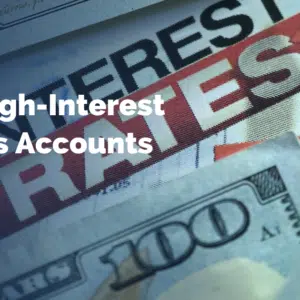Back in 2008, when the iPhone was brand new and Google was about to launch Android, traditional banks like PNC Bank were worried about the future.
Specifically, bankers wondered how they’d interact with millennials and younger digital natives as they aged into the economy.
PNC Bank tried to answer those questions when it launched Virtual Wallet in 2008.
Virtual Wallet took online banking to a new level, letting users track their spending using graphs. It even replaced some traditional banking vernacular with simpler, everyday words.
Later that year, the economy almost melted down, and bankers had to start worrying about the present.
But Virtual Wallet kept growing.
The platform attracted a million users within four years.
Virtual Wallet is still central to the PNC Bank customer experience.
Under its hood, you’ll still find PNC Bank’s traditional checking and savings accounts. So let’s take a closer look at those.
Guide to PNC Bank
My PNC Bank Review
A Brief History
PNC Bank traces its roots to the Pittsburgh Trust and Savings Co., founded in 1845. The firm grew and changed its name several times. By the mid-20th century, it had become Pittsburgh National Corp., hence the initials PNC.
Later on, in 1982, PNC merged with another PNC: Providence National Corp. of Philadelphia. These days the initials PNC don’t officially stand for either company’s name — it’s just PNC. PNC Bank is a subsidiary of PNC itself.
A steady stream of acquisitions in the 1980s and 1990s helped spread PNC Bank across the eastern half of the U.S.
29 states — from Florida to New York and from Alabama to Michigan — have PNC Bank branches.
Where to Find PNC Bank Branches
With more than 2,600 physical branches and over 50,000 ATMs, you shouldn’t have trouble connecting with PNC Bank, as long as you live in one of its 29 states:
- Alabama
- Arizona
- California
- Colorado
- Delaware
- District of Columbia
- Florida
- Georgia
- Illinois
- Indiana
- Kansas
- Kentucky
- Maryland
- Massachusetts
- Michigan
- Minnesota
- Missouri
- New Jersey
- New Mexico
- New York
- North Carolina
- Ohio
- Pennsylvania
- South Carolina
- Tennessee
- Texas
- Virginia
- West Virginia
- Wisconsin
If you don’t live in one of these states, you can still bank with PNC Bank online, including Virtual Wallet.
Of course, you’d have a much harder time visiting a branch if you needed to speak to someone directly. If you live in another state, maybe consider one of our top-rated national banks.
PNC Bank Today
If you’ve seen the PNC Bank logo before but you’re not sure where, it may have been in a grocery store, gas station, or college’s student center. The bank has an unusually large number of ATMs because of its partnerships with retailers and institutions in its 29-state coverage area.
Of course, you could use Virtual Wallet and PNC Bank’s other online tools from anywhere.
PNC Bank is now the nation’s sixth-largest bank measured by deposits. Like other large banks such as Wells Fargo and Bank of America, PNC Bank offers a wide variety of accounts without specializing in any particular service.
Instead, the bank seeks to be your everyday financial partner by providing a little of everything: checking, savings, CDs, IRAs, mortgages, lines of credit, credit cards, and even student loans.
Many of these accounts can be bundled into Virtual Wallet, so let’s take a closer look:
PNC Bank Checking Accounts
Types of Checking Accounts
PNC Bank has three options for checking, and each one requires a minimum $25 opening deposit.
Each one also charges monthly fees which you should be able to waive:
- PNC Bank Standard Checking: This is the bank’s most basic option. You can avoid its $7 monthly fee when the account receives $500 in qualifying direct deposits or maintains a $500 average monthly balance. Also, account holders age 62 or older will not be charged the monthly fee.
- PNC Bank Performance Checking: Account holders who want an interest-bearing checking account could choose this option. The account’s $15 monthly fee will be waived with $2,000 in qualifying direct deposits or an average monthly balance of $2,000.
PNC Bank customers with $15,000 in combined accounts or investments will also avoid the fee. Your balance will gain a small amount of interest.
- PNC Bank Performance Select Checking: Performance Select can offer a higher interest rate on balances, but rates still won’t compare with an online bank’s high-yield savings options.
This account’s $25 monthly fee can be waived if you receive $5,000 in qualifying direct deposits or keep an average monthly balance of $5,000 or $25,000 in combined PNC accounts and investments.
Perks with this account include bonus rates on CDs and lower fees on some PNC Bank loans, along with reimbursement of fees if you use another bank’s ATM and identity theft protection.
Open a PNC Checking Account
What Is a Qualifying Direct Deposit?
Most checking account holders can avoid monthly fees effortlessly through receiving qualifying direct deposits. This makes us wonder: What qualifies as a direct deposit?
Basically, money from your paycheck or another outside source such as the Social Security Administration or the IRS would qualify. Transfers from your other accounts or from a service like Venmo or PayPal wouldn’t qualify.
What About Overdraft Fees?
Using Virtual Wallet can help you visualize your accounts and avoid overdrafting. But if you do spend too much, PNC Bank will charge you $36 up to four times a day for each overdraft.
The bank will also charge an additional $7 each time your account stays overdrawn for five or more days in a row.
PNC Bank will continue charging $7 every five days until you reach $98, which equals 14 of the $7 fees.
You can avoid overdrafting by setting up automatic transfers to compensate for your low checking balance. Transfers can come from:
- Another PNC Bank checking account.
- A PNC Bank savings or money market account.
- A PNC Bank credit card.
- A personal line of credit.
Each automatic transfer still costs $10, but it’s money well spent if you can avoid several $36 charges. Naturally, lines of credit and credit cards will charge high-interest rates on balances resulting from the automatic transfer.
PNC Purchase Payback
This rewards program connects to PNC Bank checking account debit cards and can gradually generate some extra money.
PNC Purchase Payback works kind of like Ebates.
You can activate special offers from retailers using online banking or Virtual Wallet, then use your PNC Bank debit card to make the qualifying purchase. The resulting cash back, usually 2 to 5 percent, will appear in your checking account automatically.
Like any rewards program, it’s best to use offers that fit your lifestyle. If you already shop at Target and you can earn money by continuing to do so, it’s a no-brainer to activate the offer.
It makes less sense to go out of your way to buy something you wouldn’t ordinarily buy just to receive 3 percent cash back.
PNC Bank Savings
Types of Savings Accounts
PNC Bank has three savings account options, and it offers a wider variety of CDs than many banks.
First, let’s look at the traditional savings accounts since they work with Virtual Wallet:
- PNC Standard Savings: You’ll need $25 to open a Standard Savings account, which also has a $4 monthly fee unless you keep $300 in the account or transfer in at least $25 a month automatically from another PNC Bank account.
The bank does not charge people younger than 18 a monthly fee for savings.
- PNC ‘S’ is for Savings: This account is designed specifically for children. It features Sesame Street®️ characters encouraging kids to save more money. Account holders younger than 18 will not pay a monthly fee.
If you’re 18 or older, PNC Bank will charge $5 a month unless you have $300 in the account or set up at least $25 in automatic transfers from another PNC Bank account each month.
- Premiere Money Market: You’d need $100 to open this account, and its $12 monthly fee can be waived only by keeping $5,000 in the account each month. You’ll get a much better interest rate in a money market account.
PNC Bank’s Savings Rates
Interest rates on PNC Bank’s Standard Savings and ‘S’ is for Savings accounts are usually lower than the national average.
Standard Savings account holders with balances above $2,500 can earn at an interest rate closer to the national average.
The national average is lower than what you can find at an online-only bank specializing in savings.
If you’d like to earn money on your savings at PNC Bank, you’d be better off investing in a CD or opening a Money Market account.
Money Market accounts can generate a more respectable interest rate depending on your balance and your other PNC Bank accounts. For example, someone with Performance Select Checking at PNC Bank can qualify for higher Money Market savings rates.
Savings Account Alternatives
PNC Bank CDs
With a CD you’re agreeing to leave your money alone for a specific period of time in exchange for earning at a higher interest rate. Typically, a longer term allows a higher interest rate.
You can’t buy a CD using Virtual Wallet, but you can get connected in online banking, by phone, or at a branch.
PNC is an outlier with its 10-year CDs. If you can set aside $1,000 or more for 10 years, it could grow at a rate that’s closer to a current high-yield savings rate.
Across the board, PNC Bank has more CD options than many other large banks:
- Fixed Rate: A basic CD with guaranteed rates and automated renewal at the end of the term. You’ll need at least $1,000 (7 to 89 days) or $2,000 (90 days to 10 years) to buy a fixed-rate CD.
- Ready Access: Not sure you can leave your money alone for a few years? You might like PNC Bank’s Ready Access CD, which allows full liquidity after seven days. Terms range from three to 12 months, and interest rates will be lower. Minimum deposit: $1,000.
- Callable CD: PNC Bank’s Callable CD can earn a higher rate on a 3-year or a 5-year CD of at least $10,000. In exchange for the higher rate, the bank retains more control over the terms: It can “call” your CD early (after year 1 of a 3-year CD and after year 2 of a 5-year CD).
If the bank calls your CD early, you can access the funds (penalty-free) for 10 days or leave the money alone, and it will roll into a new 12-month CD.
- Variable Rate CD: If you worry interest rates might increase after you commit to a CD, a variable rate CD may be a good fit. You’d need at least $1,000 to buy in, and PNC Bank offers only 18-month terms for variable-rate CDs. Your rate will be tied to U.S. Treasury Bonds.
- Step Rate CD: With a $2,500 minimum deposit, you can get into a 36-month Step Rate CD whose rates increase every six months.
Before each scheduled rate increase, you can access your money without a fee. This freedom requires some compromise: You’ll get a lower rate than a standard 36-month CD.
PNC Bank IRAs
Even young adults can benefit from an Individual Retirement Account (IRA), which offers tax advantages when you save for retirement.
PNC Bank has Traditional and Roth IRAs and programs to help roll your 401(k) savings into an IRA when you change employers.
PNC Bank Loan Programs
Along with checking and savings, PNC Bank offers customers a standard variety of borrowing programs.
PNC Bank Mortgages
You can borrow money to buy a home in several different ways at PNC Bank:
- Fixed Rate: Your standard variety mortgage loan with a fixed interest rate for 10, 15, 20, or 30 years with amounts maxing out at about $484,000. You’d need to put at least 3 percent down.
- Adjustable Rate: If you’ll be earning more money in a few years or if you don’t plan to stay in the home very long, you could save money with an adjustable rate mortgage, which starts with a low rate and then increases. You’d also need 3 percent down.
- Jumbo Loans: In a high-value real estate market like New York City, or if you’re buying beachfront property, you may need a jumbo loan that specializes in financing options above $484,000.
Get a 15, 20, or 30-year loan with a fixed or adjustable rate and the option to pay back only interest for part of the term.
- Subsidized: PNC Bank is authorized to work with the Federal Housing Administration (FHA) and the Department of Veterans Affairs (VA) to offer lower-cost loans to low-income (FHA) buyers or veterans (VA).
With PNC Bank, you can start the mortgage application process online, but the bank will transition to a traditional application using the information you’ve provided.
PNC Bank does consider non-traditional payment histories such as rent and utilities as it looks at your credit history, which can help some buyers. The bank’s site has educational videos and articles that can help first-time buyers.
But if you’re not already a PNC Bank customer, you’d have more options and a more seamless experience at an online lender such as Rocket Mortgage or PrimeLending, especially when you consider most large banks like PNC Bank sell most mortgages to other lenders anyway.
Refinances and Equity Loans
The bank’s mortgage programs can also help you refinance your property if you’re trying to get out of an adjustable-rate mortgage or if you can now qualify for a lower fixed rate.
And, PNC Bank offers several loans to leverage your home’s equity:
- Choice Home Equity Line of Credit: Use your home equity to fund a credit card-style account you can use to finance home projects. The pay-as-you-go approach appeals to many borrowers who’d like to avoid a fixed loan.
Also, homeowners who want to complete projects gradually enjoy the flexibility. Account minimum: $10,000.
- Home Equity Loan: If you want the stability of a fixed rate and you have your project already budgeted, a standard home equity loan can help. You could borrow as little as $1,000.
- Home Equity Rapid Refinance: Someone who needs to access equity right away — because of a repair that can’t wait or some kind of financial emergency — may want to speed up the process with this kind of loan. These loans are also popular when interest rates may increase soon.
Rates and fees with these loans aren’t anything to brag about. You can do better with a mortgage specialist.
Other PNC Bank Consumer Loans
If you’re already using PNC Bank’s checking and savings accounts — either with or without Virtual Wallet — you’ll also have access to the bank’s personal loan programs.
PNC Bank can help you with:
- Auto Loans: PNC Bank’s auto buying program is surprisingly robust. It’s stocked with helpful calculators, car-finding services, and loans designed for purchasing from a dealer or a private party. The bank also has easy-to-use loans for refinances or lease buyouts.
- Student Loans: PNC Bank private student loans can’t beat the lower cost of publicly financed options, but they have other benefits, such as discounts when you enroll in autopay and the ability for your co-signer to opt out of the loan after you’ve made 48 on-time payments.
Disadvantages include 12-month caps on forbearance periods.
- Personal Lines of Credit: PNC Bank lets you take out fixed personal loans — both secured and unsecured — for personal expenses such as unplanned medical bills, higher than anticipated tax bills, or simply to buy a big-ticket item such as a used boat.
You can also get a personal line of credit with no collateral that works more like a credit card but with a lower interest rate.
- Credit Cards: You can find credit cards specializing in cash-back bonuses, lower interest rates, travel rewards, and retail bonus points. Most options require no annual fee, and qualified applicants can get promotional periods of no interest.
Even after the promotion expires, PNC Bank’s credit cards shave a few points off the industry’s highest interest rates.
Folding It All Together in Virtual Wallet
PNC Virtual Wallet builds off the ordinary PNC Bank accounts we’ve discussed to change the way customers interact with their money.
Despite the revolutionary talk a decade ago, Virtual Wallet hasn’t changed banking. Customers still have checking accounts, overdraft fees, monthly fees, and minimum deposits to consider.
Instead, Virtual Wallet is more like a budgeting app like Mint or Personal Capital, except with your PNC Bank accounts already tied in.
Virtual Wallet Features
The platform’s features include:
- Money Bar: At a glance, you can see on a graph your available funds, your money that’s already tied up as an upcoming scheduled payment, and your money in savings.
- Calendar with Integrated Bill Pay: Virtual Wallet integrates your budget calendar with online bill payments. This can save a click or two.
- Budgeting Tools: You can set up budget categories and easily track how you’re doing. This feature encourages you to make a decision before overspending, which can help you stay accountable.
- Savings Tools: To help you save, Virtual Wallet distinguishes between long-term savings and short-term savings for a specific purchase such as an auto downpayment. The platform also encourages savings through auto transfers and impromptu deposits called “punch the pig.”
- Account Options: How you build your Virtual Wallet can vary. It can include standard checking and savings accounts or PNC Bank’s more exclusive accounts (Performance checking, for example).
- Transfers: Of course, you can easily transfer money between accounts using Virtual Wallet. You can also pay someone else with Popmoney, a P2P-style service. Mobile deposit is available using Virtual Wallet’s smartphone apps.
Virtual Wallet Key Fees
Along with the waivable monthly fees and overdraft fees we’ve already discussed when we looked at individual checking and savings accounts, Virtual Wallet customers should be aware of these common fees:
- Paper Statement Fee: To receive a paper statement, PNC Bank will charge an additional $2 a month. For $3, you can get a statement with images.
- Staff-Assisted Transfers: If you call PNC Bank to transfer money rather than transferring money online or at an ATM, the bank will charge $3.
- ATM Statements: To get a full statement at an ATM, you’ll be charged $3. You can get a mini-statement for $2.
- Out-of-U.S. ATM Fees: The bank will charge $3 or 3 percent, whichever is higher, for using an ATM outside the United States.
- Card Replacement: If you lose your PNC Bank debit card, you’ll pay $7 for a replacement.
- Early Closure: PNC Bank can charge $25 if you close your account within 180 days of opening it.
Four Different Virtual Wallets
PNC Virtual Wallet now comes in four varieties:
- Virtual Wallet: The original and most basic version; includes PNC Bank Standard Checking and a $7 fee each month unless you’re a student or you’re older than 62.
You can waive the fee by receiving $500 in qualifying direct deposits or keeping $500 in checking (called Spend in Virtual Wallet) or $500 in savings (Reserve).
- Virtual Wallet With Performance Spend: Folds in PNC Bank’s Performance checking instead of Standard checking.
You can earn a small return on your checking balance if you keep $2,000 in checking (Spend); avoid the monthly $15 fee with $2,000 in qualifying direct deposits or $2,000 in checking or savings.
- Virtual Wallet With Performance Select: Includes PNC Bank’s Performance Select checking with its ability to earn higher interest on larger balances. Waive the $25 fee by keeping $5,000 or more in the bank or having a combined $25,000 in all PNC Bank accounts or balances.
- Virtual Wallet Student: Works like the standard version of Virtual Wallet, except parents can monitor from a connected account.

Final Thoughts – Do PNC Bank and Virtual Wallet Fit Your Life?
If you live near a branch and you’d like to start a new personal banking relationship, PNC Bank should be in a position to handle your everyday needs.
Of course, online reviews will show you testimonials from unhappy customers. That’s true of just about any bank if you look around long enough.
Many bad experiences result from misunderstandings or a failure to read the fine print. Other times, negative reviewers have legitimate issues to discuss. I’d start paying more attention to reviews when you see the same problem arising consistently among multiple customers.
PNC Bank does a lot of things well. It’s not the best at any particular type of account.
You’ll find higher interest rates on savings and lower fees at an online bank. You can find a more seamless mortgage application elsewhere, too.
But PNC Bank does excel at putting it all together.
Whether you’re using a Virtual Wallet product or simply interacting with the bank like you did a generation ago, PNC Bank can be a reliable partner.
Learn more about PNC Bank >>
How We Review Banking or Financial Institutions:
Good Financial Cents undertakes a comprehensive review of banking and financial institutions, analyzing service offerings, customer satisfaction, and financial stability.
Our intention is to provide readers with a balanced overview, aiding them in their financial journey. We consistently emphasize editorial transparency.
We source data from these institutions, reviewing account offerings and other key services. This data, when combined with our in-depth research, forms the foundation of our evaluation.
Institutions are subsequently rated on a range of criteria, resulting in a star rating from one to five.
For further insight into the criteria we use to rate banking and financial institutions and our evaluation approach, please refer to our editorial guidelines and full disclaimer.
PNC Bank Review
Product Name: PNC Bank
Product Description: PNC Bank is a prominent financial institution renowned for its comprehensive range of banking and financial products. From traditional checking and savings accounts to investment services, mortgages, and business banking solutions, PNC offers a diverse portfolio tailored to meet the financial needs of individuals and businesses alike.
Summary of PNC Bank
PNC Bank stands out in the competitive banking landscape as a versatile financial institution offering a wide spectrum of products and services. For individuals, PNC’s checking and savings accounts provide accessible and user-friendly options, often accompanied by robust online and mobile banking platforms. Their credit card offerings come with various rewards programs, appealing to diverse consumer preferences. Furthermore, PNC’s mortgage division provides potential homeowners with a selection of loan products, including fixed-rate and adjustable-rate mortgages, catering to various financial situations. Their investment and wealth management services are comprehensive, offering a range of advisory services, retirement planning, and investment options to help clients achieve their financial goals. On the business front, PNC Bank offers tailored solutions such as business checking and savings accounts, lines of credit, and equipment financing to help companies manage their finances efficiently. They also provide merchant services, treasury management, and commercial real estate financing for larger enterprises.
-
Cost and Fees
-
Customer Service
-
User Experience
-
Product Offerings
Overall
Pros
- Diverse Product Portfolio: PNC Bank boasts a comprehensive suite of financial products and services, catering to the diverse needs of both individuals and businesses.
- Strong Online Banking: PNC’s online and mobile banking platforms are user-friendly, providing customers with convenient access to their accounts and tools for managing their finances.
- Investment and Wealth Management: PNC’s wealth management services offer personalized solutions, including retirement planning and investment options, helping clients build and protect their wealth.
- Business-Focused Solutions: PNC’s specialized business banking offerings, including treasury management and commercial real estate financing, make it a valuable partner for businesses of all sizes.
- Network of ATMs and Branches: With an extensive network of ATMs and branches across multiple states, PNC ensures easy access for its customers.
Cons
- Limited Geographic Coverage: PNC Bank primarily operates in the eastern and midwestern regions of the United States, limiting its accessibility for customers in other parts of the country.
- Service Fees: Some PNC accounts may come with fees, and customers need to be aware of these charges to avoid unexpected costs.
- Interest Rates: Like many traditional banks, PNC’s interest rates on savings accounts and certificates of deposit may be lower compared to online-only banks, potentially resulting in lower interest earnings for savers.
- Customer Service: While PNC generally offers good customer service, some customers have reported occasional issues with responsiveness and problem resolution.







